Naughty Dog’s Intergalactic: The Heretic Prophet, unveiled at The Game Awards 2024, was meant to be a bold new chapter for the studio behind The Last of Us and Uncharted. Instead, it has become a lightning rod for controversy, with its trailer amassing over 246,000 dislikes on YouTube compared to just 96,000 likes. At the center of the storm is lead actress Tati Gabrielle, who plays protagonist Jordan A. Mun. Gabrielle’s recent comments about undergoing a Naughty Dog “bootcamp” to prepare for fan backlash—coupled with her earlier decision to mock critics with a provocative meme—have ignited a firestorm. Fans, already polarized by the trailer’s reception, are now accusing her and Naughty Dog of hypocrisy, while others defend her against what they see as unfair vitriol. What’s driving this escalating saga, and what does it reveal about the state of gaming culture?
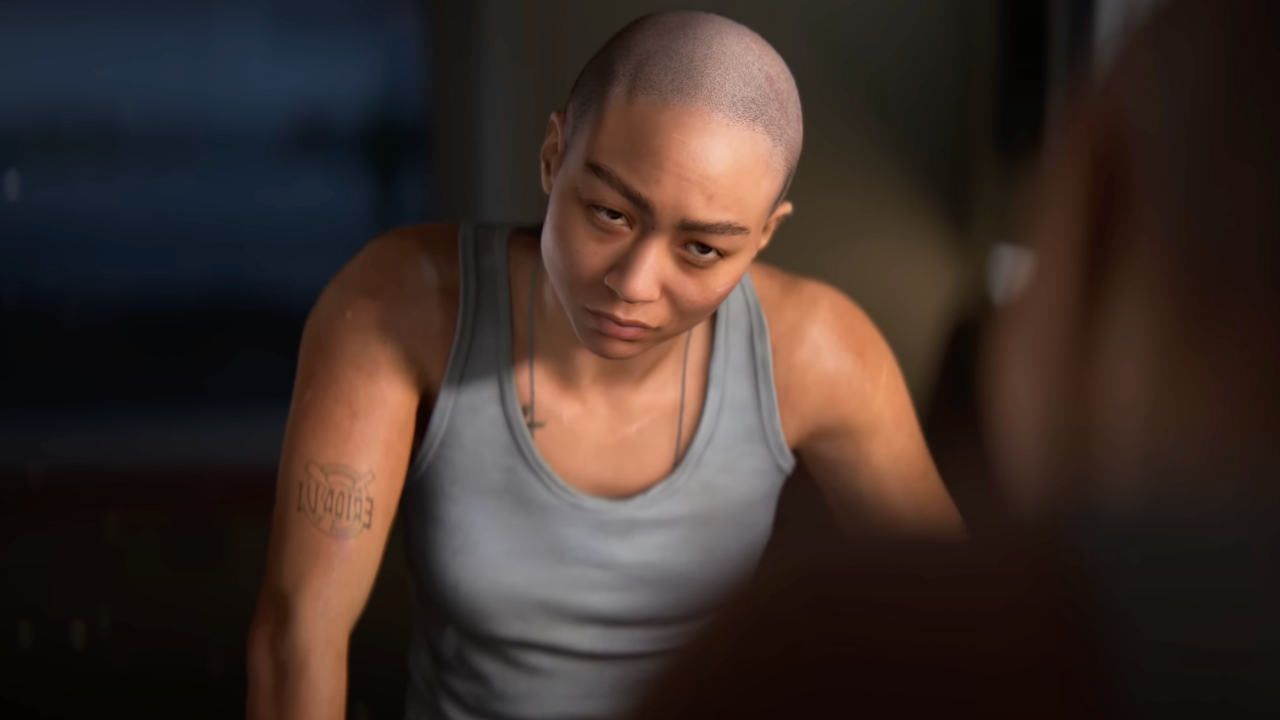
The Trailer’s Rocky Debut
Intergalactic: The Heretic Prophet promised a sci-fi adventure set in an alternate 1980s timeline, blending retrofuturism, anime-inspired aesthetics, and a narrative exploring faith and religion. Directed by Neil Druckmann and scored by Trent Reznor and Atticus Ross, the game follows Jordan A. Mun, a bounty hunter stranded on the mysterious planet Sempiria. The trailer, featuring Tati Gabrielle’s shaved-headed protagonist wielding a crimson laser sword, initially wowed audiences with its visuals. However, excitement quickly turned to backlash, with the YouTube trailer on PlayStation and Naughty Dog channels flooded with dislikes. Naughty Dog preemptively disabled comments on its version, while PlayStation’s comment section became a battleground of criticism.
Much of the backlash targeted Jordan’s appearance, with some fans decrying her as “unappealing” or accusing Naughty Dog of pushing a “woke” agenda by casting a bald, Asian woman of color. Others criticized the trailer’s heavy product placement—featuring brands like Sony, Porsche, and Adidas—as overly commercialized. Posts on X and Reddit, such as one noting, “How many brands do we want in this trailer? Yes,” reflected frustration with the in-your-face branding. These critiques, while varied, echoed the divisive reaction to The Last of Us Part II in 2020, where Naughty Dog’s narrative choices and diverse casting sparked similar debates.
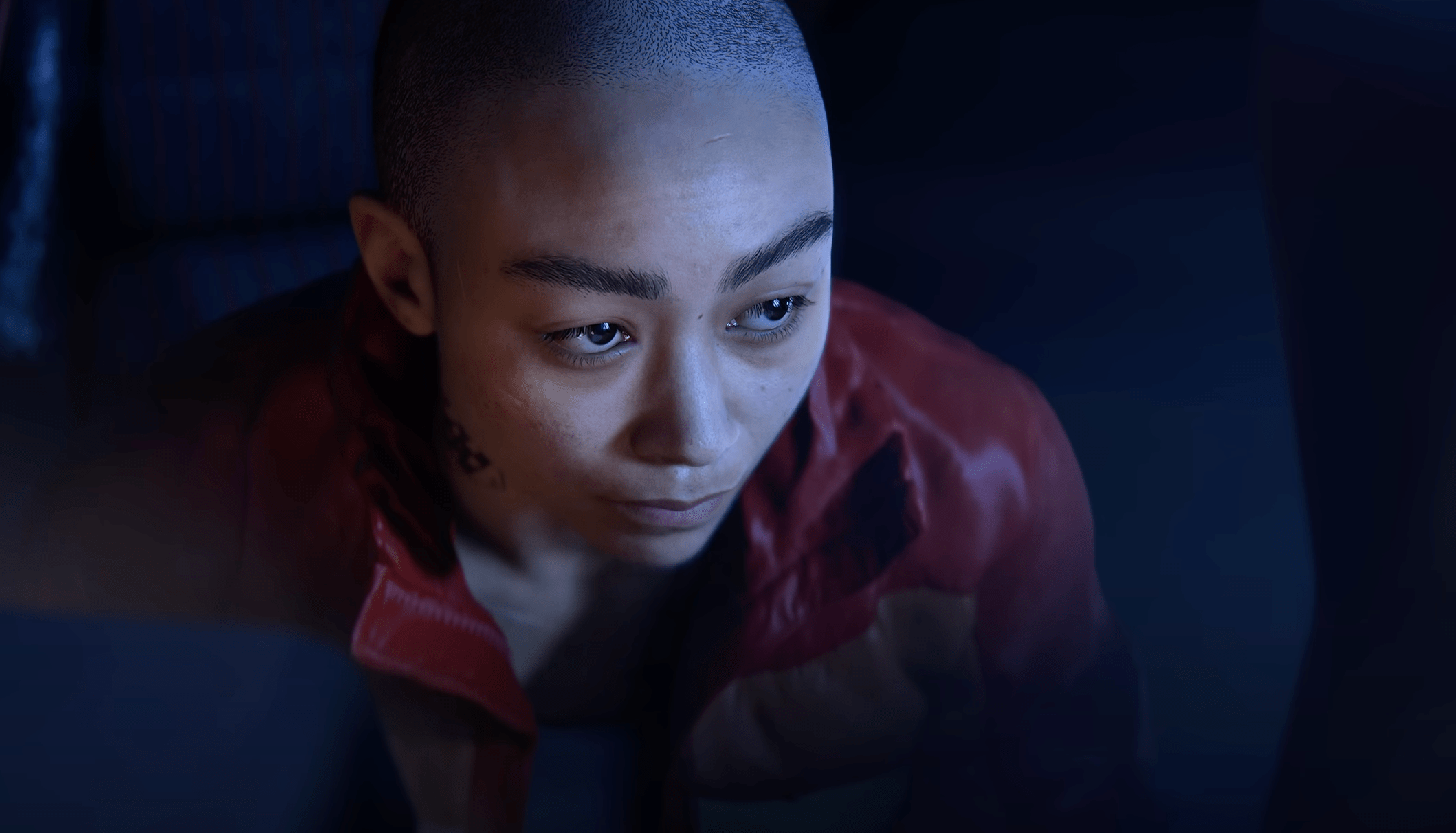
Tati Gabrielle’s Meme: Fueling the Fire
In December 2024, shortly after the trailer’s release, Tati Gabrielle responded to the backlash with a now-infamous Instagram Stories post. She shared fan art depicting Jordan and Ciri (from The Witcher 4) sipping drinks labeled “Fragile Masculini-Tea” made from “100% Incel Tears,” captioned with a taunting “You mad bro?” The meme, also mocking critics of The Witcher 4’s female-led trailer, was seen as a direct jab at fans who disliked Intergalactic’s protagonist. While some praised Gabrielle’s defiance, others viewed it as dismissive and inflammatory, accusing her of alienating the gaming community.
The post, later deleted, went viral, with X users like @Ciaranredokeefe calling it “typical” for Gabrielle to “scream she’s a victim” after provoking critics. Another post by @NatalyaSirinova in December 2024 warned that Gabrielle’s attitude could deter fans from buying the game, stating, “We decide whether to purchase or not, and with this attitude, even less so!” The meme intensified perceptions that Naughty Dog and its talent were more interested in antagonizing fans than addressing their concerns, a sentiment rooted in the studio’s history of contentious fan interactions during The Last of Us Part II’s release.
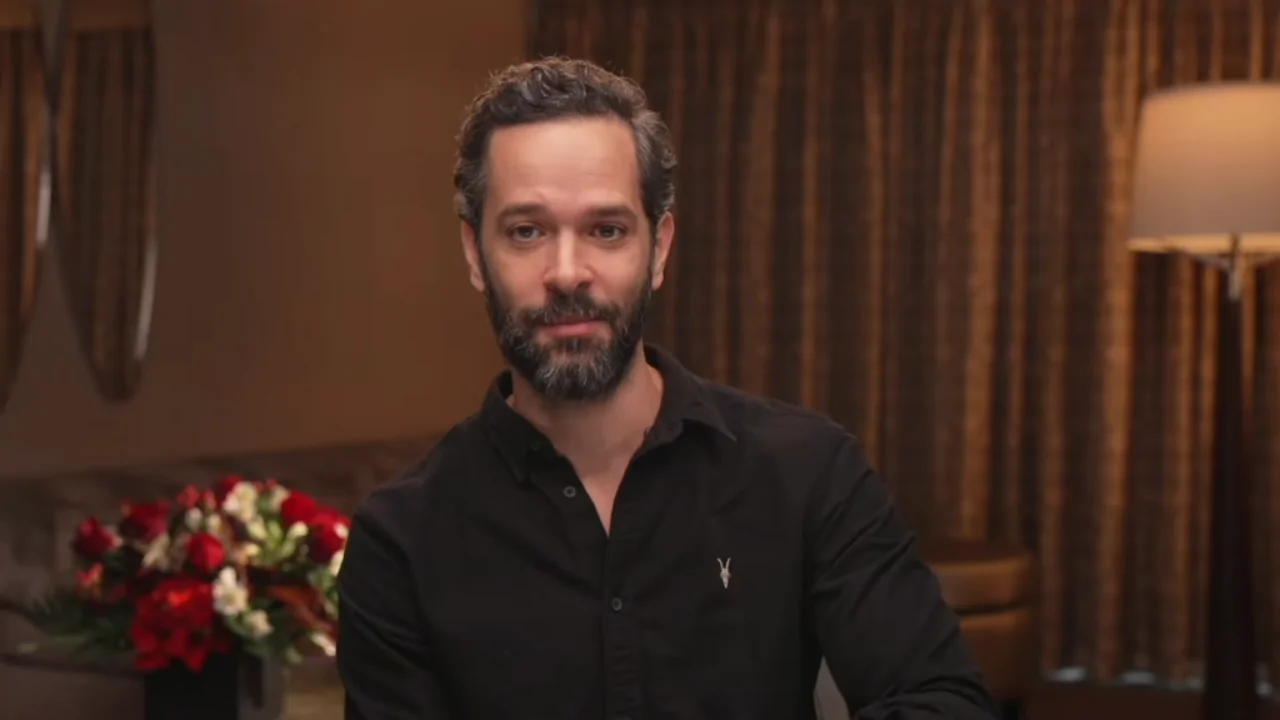
The “Bootcamp” Revelation: A Shift to Victimhood?
In May 2025, Gabrielle revealed in an Entertainment Weekly interview that Neil Druckmann, Naughty Dog’s studio head, had been “bootcamp-ing” her to prepare for the anticipated fan backlash. Referencing the experiences of The Last of Us actors Laura Bailey (Abby), Troy Baker (Joel), and Ashley Johnson (Ellie)—who faced harassment, including death threats, after Part II’s release—Gabrielle said she was bracing for similar vitriol. “I got a lot of love, but there was a lot of hate over me being a woman, me being a woman of color, me having my head shaved,” she noted, explaining her decision to avoid social media to shield herself from negativity. Druckmann’s advice? “Ignore it. No matter what, me and you, we’re going to make something beautiful.”
The “bootcamp” comments, reported by outlets like IGN and GameRant, reignited the controversy. Critics argued that Gabrielle’s claim of victimhood clashed with her earlier mockery of fans, with @TPPNewsNetwork on X calling it a “PR contradiction” that paints her as both aggressor and victim. Others, like @Vara_Dark, accused her of “playing the victim” to deflect legitimate criticism. The narrative of a Naughty Dog-led “bootcamp” also raised eyebrows, suggesting the studio anticipated backlash and was proactively framing it as harassment to shield the game from scrutiny. This perception was fueled by Naughty Dog’s past, where The Last of Us Part II’s divisive story led to accusations that the studio labeled all criticism as toxic to avoid accountability.
Naughty Dog’s Track Record: A Pattern of Polarization
The Intergalactic controversy mirrors Naughty Dog’s experience with The Last of Us Part II, which remains one of gaming’s most polarizing titles. That game’s narrative choices—particularly a shocking character death and the introduction of Abby, a muscular female character—drew praise for its ambition but also sparked review-bombing and harassment. Laura Bailey, Abby’s voice actress, faced death threats, prompting Naughty Dog to publicly condemn the abuse. However, some fans felt the studio conflated legitimate critiques with harassment, using identity politics to deflect narrative criticisms. A That Park Place article argued that Naughty Dog’s strategy—provoking controversy, mocking backlash, then claiming victimhood—was being repeated with Intergalactic.
Neil Druckmann’s role adds another layer. His comments to Entertainment Weekly, alongside 28 Days Later writer Alex Garland, downplayed potential controversy over Intergalactic’s faith-centric story, with Garland saying, “Who gives a sh*t?” and Druckmann agreeing. This cavalier attitude, coupled with his “bootcamp” guidance to Gabrielle, has led some to accuse Naughty Dog of deliberately courting controversy to generate buzz. Critics on X, like @SabrPath, claimed the studio is “deflecting failure onto the audience,” suggesting Intergalactic’s poor reception is being spun as fan toxicity rather than a creative misstep.
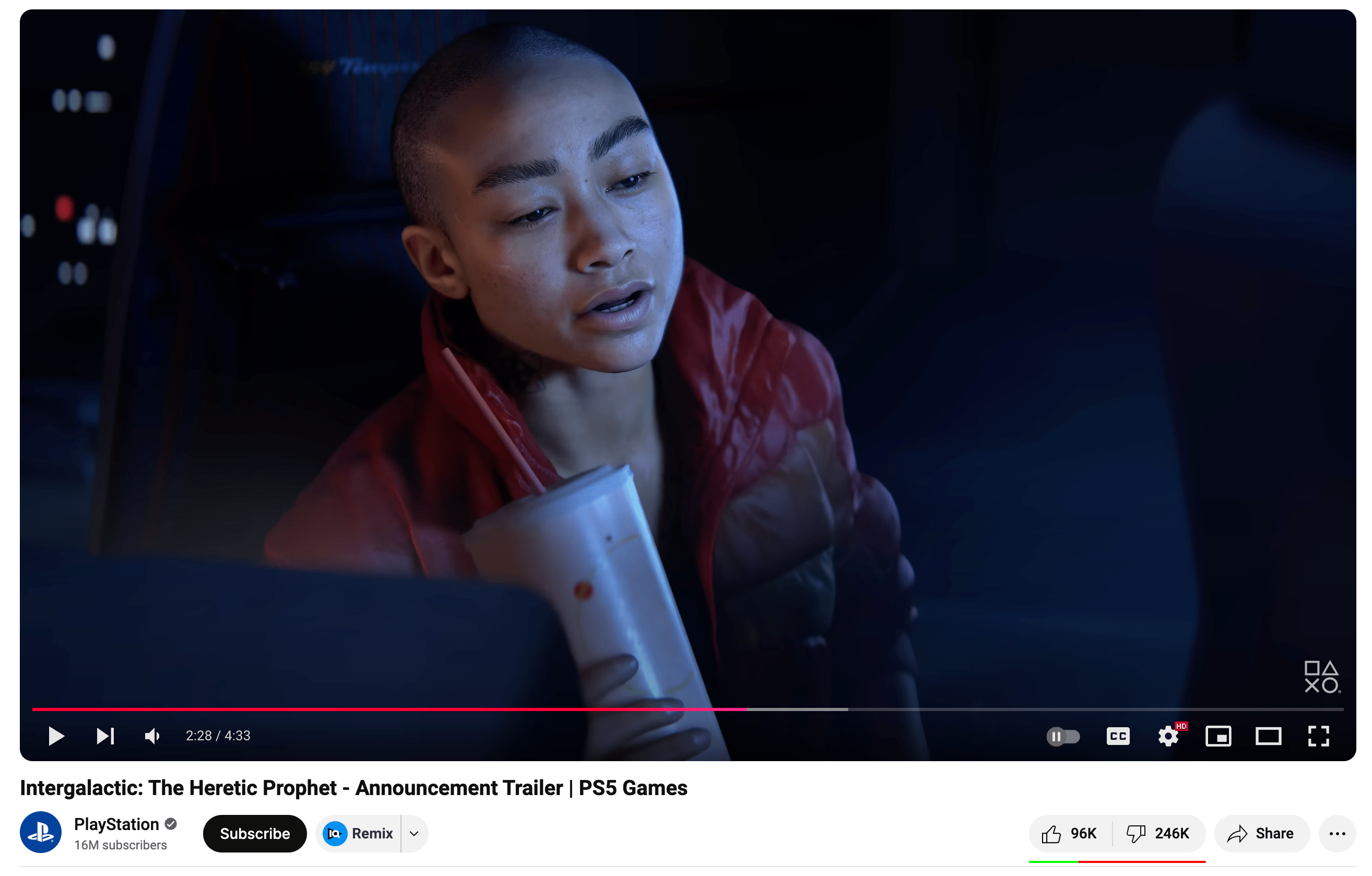
The Fan Divide: Harassment vs. Legitimate Critique
The backlash against Intergalactic is a mix of toxic harassment and substantive criticism, making it a complex issue. Some attacks on Gabrielle are undeniably hateful, targeting her race, gender, and appearance with misogynistic and racist vitriol. She noted in her interview that she faced hate “for being a woman, a woman of color,” a reality echoed by the experiences of Bailey and other Naughty Dog actors. Supporters on Reddit’s r/SocialistGaming praised the trailer’s “Cassette Futurism aesthetic” and defended Jordan’s design, arguing that complaints about her baldness or gender reflect shallow biases. One user wrote, “I think she looks cool and interesting,” dismissing the hate as “ridiculous.”
However, other fans argue that their critiques are not about Gabrielle’s identity but about Naughty Dog’s storytelling and marketing choices. Some on Reddit speculated that Intergalactic might be a “middling soulslike” with minimal interplanetary travel, disappointing those expecting a grand sci-fi epic. Others criticized the trailer’s focus on Jordan as a “girlboss” archetype, comparing it unfavorably to The Last of Us Part II’s shift from Joel to Abby. A That Park Place piece noted that fans feel alienated by Naughty Dog’s emphasis on diversity, equity, and inclusion (DEI) at the expense of engaging gameplay, a sentiment reflected in the trailer’s 72% dislike ratio. These critics argue that Gabrielle’s meme dismissed valid feedback, escalating tensions.
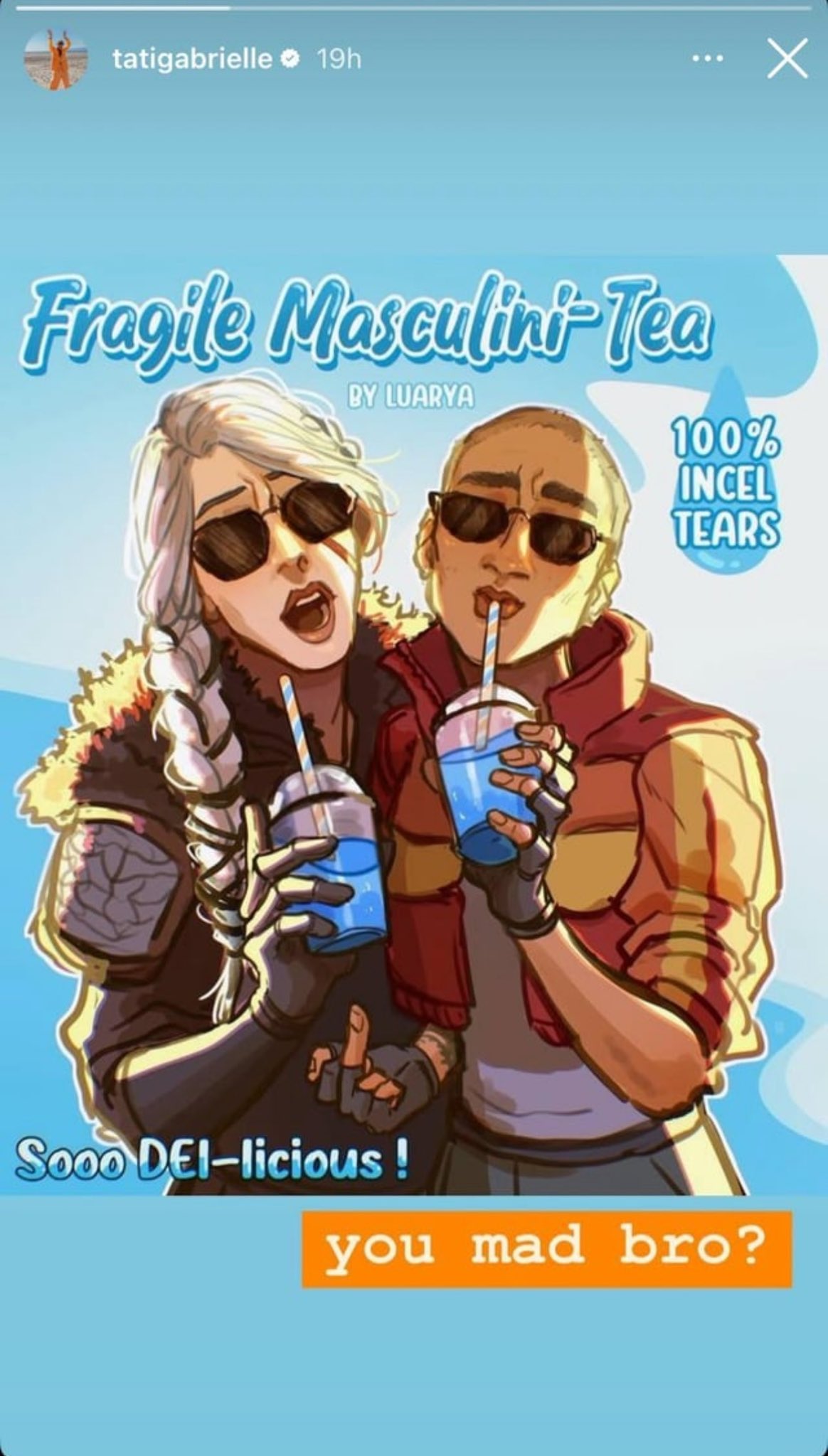
The DEI Debate: Representation or Pandering?
The Intergalactic controversy has reignited debates about DEI in gaming. Some fans accuse Naughty Dog of prioritizing representation over quality, pointing to Jordan’s casting and the trailer’s aesthetic as evidence of “forced” diversity. A FandomWire article quoted a fan questioning whether Naughty Dog represents “who’s actually playing the games,” suggesting a disconnect between developers and their audience. This mirrors broader industry trends, with games like Suicide Squad: Kill the Justice League facing similar backlash for DEI-driven narratives.
Conversely, defenders argue that diversity is integral to gaming’s evolution. The X-Men’s allegory for marginalized groups, for example, resonates with Intergalactic’s themes of faith and identity, and casting a woman of color like Gabrielle aligns with this ethos. Supporters on X, like @Okami13_, highlighted Gabrielle’s enthusiasm for the role, noting her Instagram post: “I’M GONNA BE IN A VIDEO GAME Y’ALL!” They argue that the hate reflects resistance to change in a historically male-dominated gaming culture, not flaws in the game itself.
Naughty Dog’s Response: Silence or Strategy?
Naughty Dog’s decision to disable trailer comments and Druckmann’s “ignore it” advice to Gabrielle suggest a calculated approach to the backlash. By framing criticism as hate, the studio may be attempting to rally support from progressive audiences while deflecting narrative critiques. However, this risks further alienating fans who feel their feedback is being ignored. A ComicBook.com report noted that neither Naughty Dog nor PlayStation has publicly addressed the backlash, leaving Gabrielle’s comments and deleted meme as the primary response. This silence contrasts with the studio’s vocal defense of The Last of Us Part II actors, raising questions about whether Naughty Dog is bracing for a prolonged PR battle.
The game’s star-studded cast—including Kumail Nanjiani, Tony Dalton, and Troy Baker—offers hope that Intergalactic could overcome its rocky start. Fan speculation about the cast, fueled by a group photo in the trailer, has generated some positive buzz, with Reddit users identifying Dalton and Nanjiani as potential highlights. Yet, with no release date (likely 2027 at the earliest), Naughty Dog faces an uphill battle to rebuild trust.
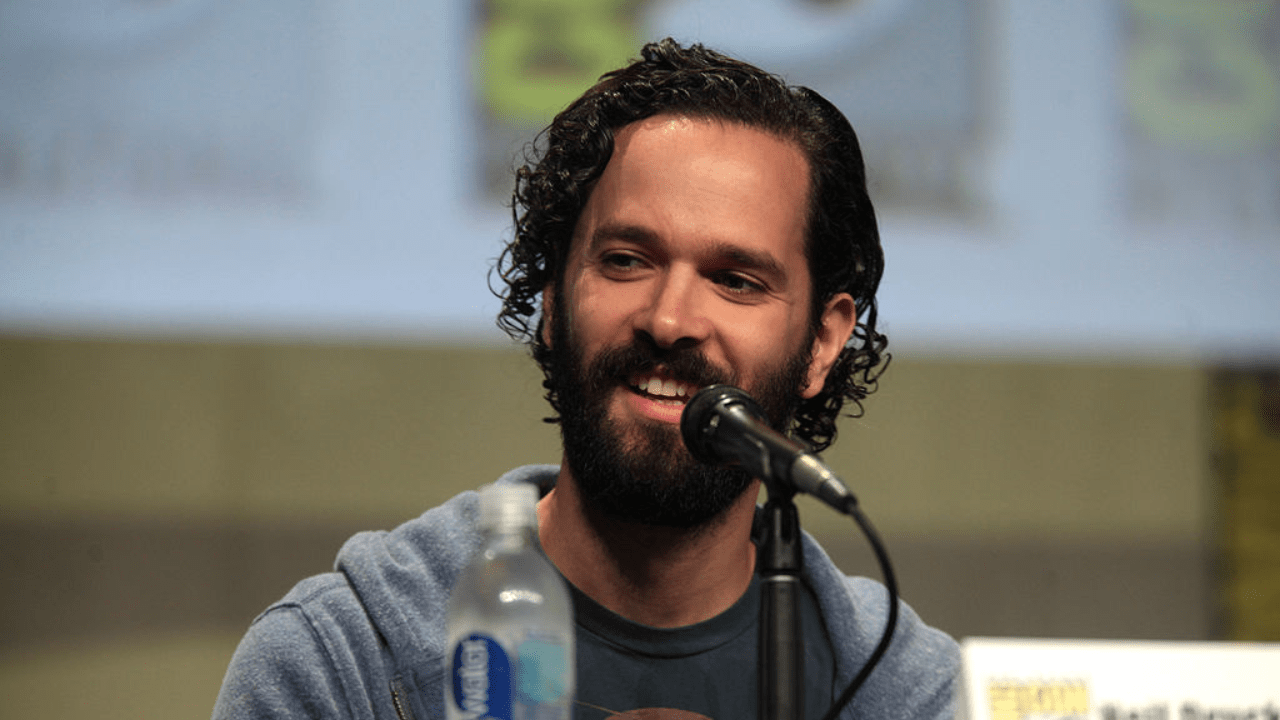
The Bigger Picture: Gaming Culture at a Crossroads
The Intergalactic saga reflects broader tensions in gaming. The industry is grappling with how to balance creative ambition, fan expectations, and cultural shifts toward inclusivity. Naughty Dog’s track record—producing critically acclaimed titles like The Last of Us despite controversy—suggests Intergalactic could still succeed. Druckmann’s claim to IGN that the game is “playable” and “really good” hints at confidence in its quality. However, the studio’s apparent strategy of provoking then dismissing critics risks deepening the divide with its audience.
Gabrielle’s journey—from mocking fans to claiming she needed a “bootcamp” for hate—encapsulates this divide. Her meme, while a bold clapback, alienated fans who felt their critiques were unfairly branded as bigotry. Her subsequent comments about facing racist and misogynistic abuse highlight the toxic undercurrent in gaming, but her shift to victimhood has been criticized as inconsistent. As one X user put it, “You can’t poke the bear and then cry when it roars.” The challenge for Naughty Dog is to deliver a game that transcends this drama, proving that Intergalactic is more than its controversies.
Conclusion: A Test for Naughty Dog and Its Fans
Intergalactic: The Heretic Prophet’s controversy is a microcosm of gaming’s cultural battles. Tati Gabrielle’s meme and “bootcamp” comments have amplified a divide between Naughty Dog’s vision and a vocal segment of its fanbase, echoing the fallout from The Last of Us Part II. While some fans decry the studio’s approach as pandering, others see the backlash as rooted in resistance to diversity. The truth likely lies in the middle: Naughty Dog’s provocative marketing and dismissive responses have clashed with a fanbase hungry for respect and quality.
As Intergalactic moves toward release, Naughty Dog must navigate this storm with transparency and a commitment to delivering a game that lives up to its ambitious premise. For fans, the challenge is to separate legitimate critique from toxic hate, engaging with the game on its merits. Whether Intergalactic becomes a triumph or a cautionary tale, its controversy underscores the passion and volatility of gaming culture—and the high stakes of getting it right.





